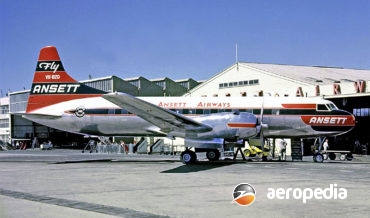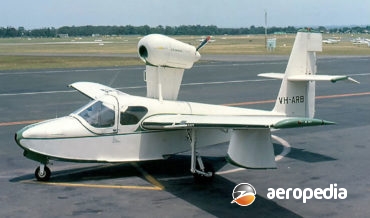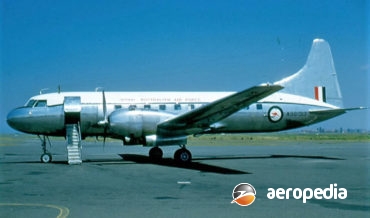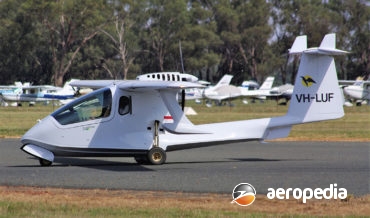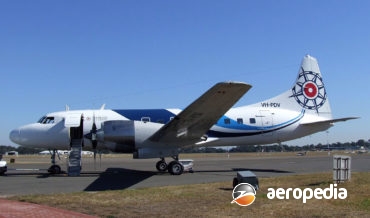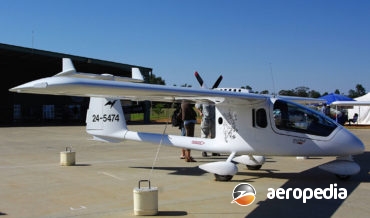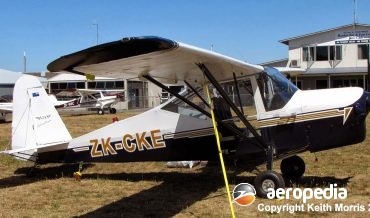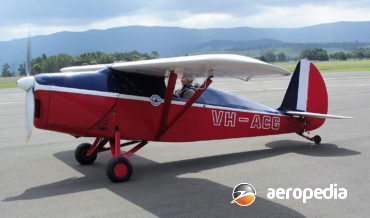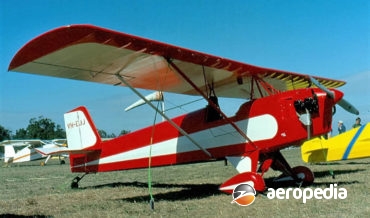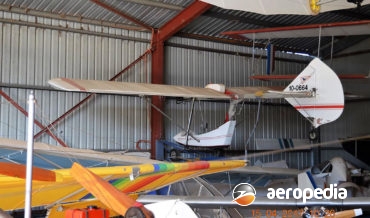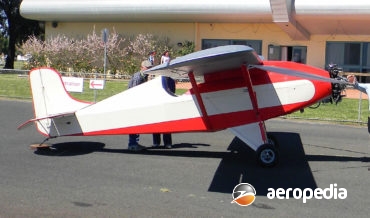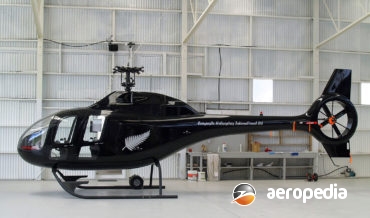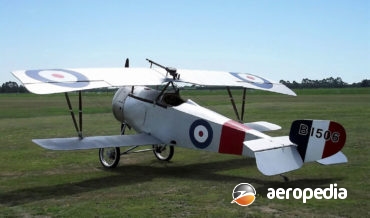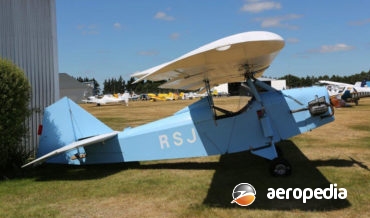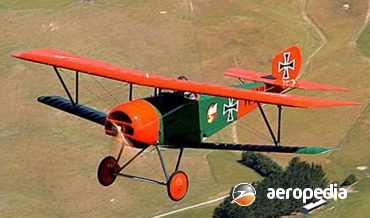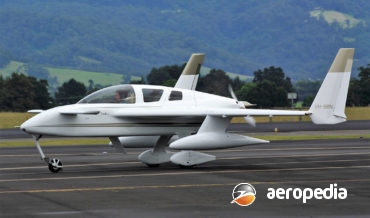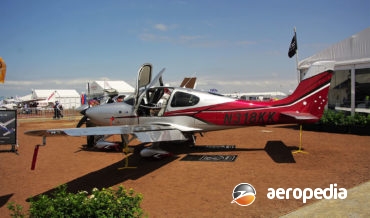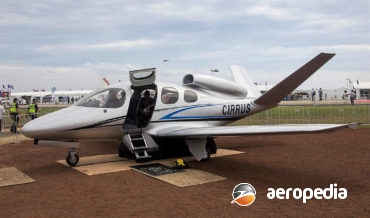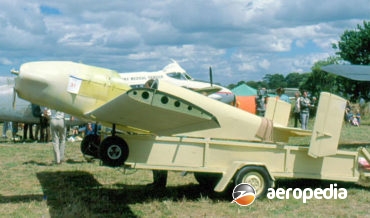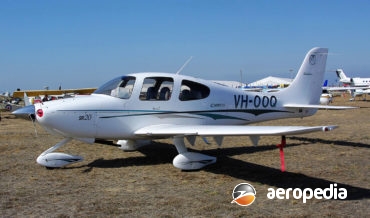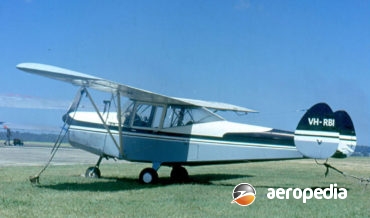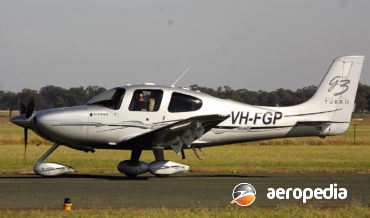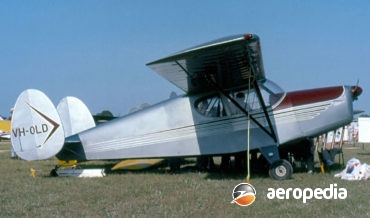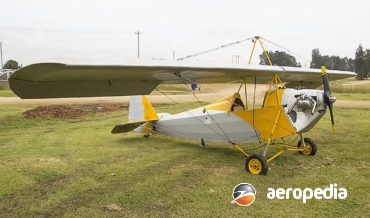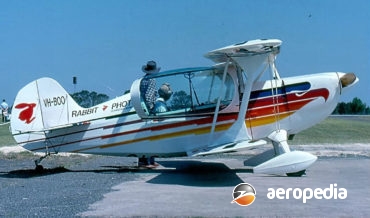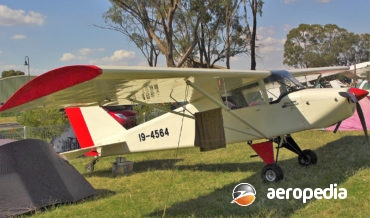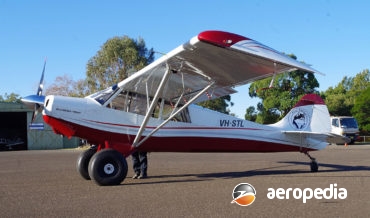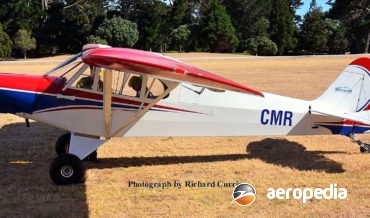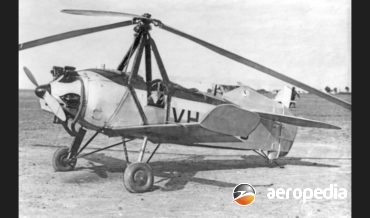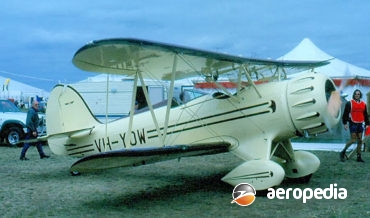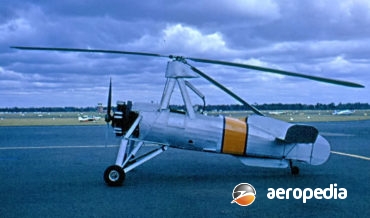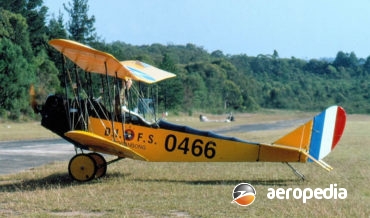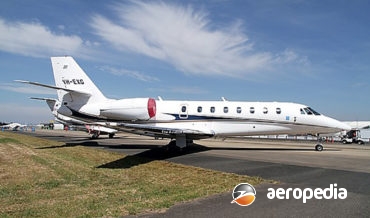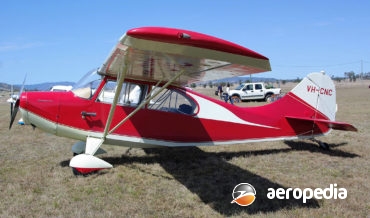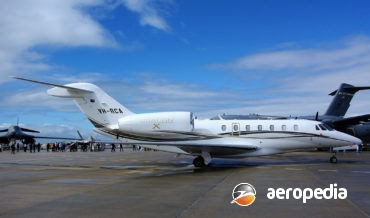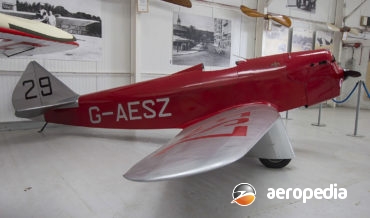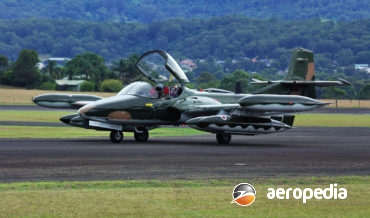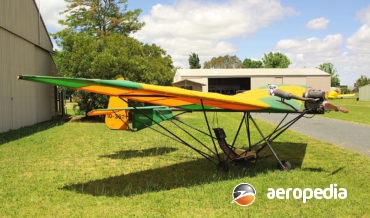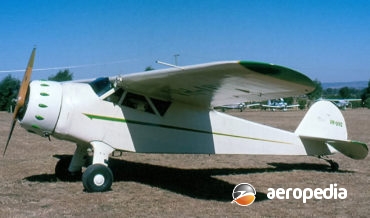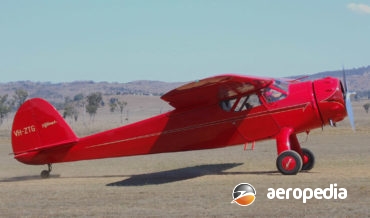All Contents
Contents
Following the widespread success of the CV-240 series, the Consolidated Vultee Aircraft Corporation of San Diego, California moved on to the development of the CV-340 series. Initially known as the CV-240A, the prototype (N3401) first flew on 5 October 1951, certification being obtained on 27 March 1952.
David C. Eyre
- May 17, 2019
The skimmer was a successful foray into the production of an amphibian for private use by the Colonial Aircraft Corp.
David C. Eyre
- May 17, 2019
Following the success of the earlier CV-240 and CV-340 models, Convair chose to continue refine the series, despite the inroads then being made into the airline market by the Rolls Royce Dart powered Vickers Viscount.
David C. Eyre
- May 17, 2019
Colyaer SL has been building light sport aircraft for some years, the first aircraft produced being the Martin, which was fully certified and was a two-seater with a fixed tricycle undercarriage, this model becoming available in 1999 and in its later form was known as the Martin 3.
David C. Eyre
- May 17, 2019
A successful series of airliners produced in the 1950s was the Convair CV-240, CV-340 and CV-440 series, a number of which saw service with airlines in Australia, and two were operated by the RAAF VIP flight.
David C. Eyre
- May 17, 2019
Colyaer SL, [construcciones Ligeras y Aeronauticas S.L.] has been building light sport aircraft for some years, the first aircraft produced being the Martin, for which three prototypes were built, one of which was fully certified and was a two-seater with a fixed tricycle undercarriage, this model becoming available in 1999
David C. Eyre
- May 17, 2019
The Adventurer is a single-engine two-seat light sporting high-wing monoplane built in New Zealand by Mr Bruce Cooke.
David C. Eyre
- May 17, 2019
Designed by Flight Lieutenant Nicholas Comper, the founder of the Comper Aircraft Co Ltd, the CLA7 Swift was a tiny but very efficient single-seat sporting aircraft of wooden construction, fabric covered (except for the plywood rear decking), and powered by a 26-kw (35-hp) ABC Scorpion radial engine.
David C. Eyre
- May 17, 2019
The Baby Ace was designed in the early 1930s by O J Corben as a single-seat sporting aircraft which could be fitted with a variety of engines. Early aircraft were fitted with the 37-kw (50-hp) Salmson AD9, the Continental A40, or the 34-kw (45-hp) Szlesky.
David C. Eyre
- May 17, 2019
The Stingray was an early foray into the construction of ultra-light aircraft in Australia, being placed into production by Composite Engineering Pty Ltd at Camden, NSW. Fitted with a tricycle undercarriage, it was built to +6 -4 G and had max cross-wind component of 37 km/h (23 mph). Fuel consumption
David C. Eyre
- May 17, 2019
The Super Ace was one of a number of light aircraft designed for sporting pilots in the United States by Orland G Corben. His first design, the Ace, was first marketed in 1923 and this was followed in later years by the Junior Ace, the Cabin Ace and the Super
David C. Eyre
- May 17, 2019
The KC-518 is a five / six seat utility helicopter aimed at the amateur-built market. It is available as a kit light helicopter of advanced design featuring fibre and Kevlar composite construction.
David C. Eyre
- May 17, 2019
Circa Reproductions in Canada is a company which produces plans to build 87-percent scale World War I aircraft, the aircraft design being produced by Graham Lee of Lamont, Alberta. Leading Edge Air Foils, based at Peyton in Colorado for a time provided construction kits for the designs.
David C. Eyre
- May 17, 2019
The Fred was designed by Eric Clutton in the United Kingdom as a single-seat light parasol-wing aircraft for amateur construction. The name “Fred” stands for “flying runabout, experimental design”.
David C. Eyre
- May 17, 2019
Circa Reproductions in Canada is a company which produces plans to build 87-percent scale World War I aircraft, the aircraft design being produced by Graham Lee of Lamont, Alberta.
David C. Eyre
- May 17, 2019
The Cozy was designed by Nathan Puffer in 1980 as a two-seat side-by-side development of the Rutan Long Ez, the first flight of the type taking place on 19 July 1982.
David C. Eyre
- May 17, 2019
On 24 February 2015 Cirrus Aircraft launched a variant of the SR22 specifically tailored to Australian conditions. Called the Australis the first example of the aircraft (N318KK) flew into Australia in mid-February 2015 and was placed on display at the Australian International Airshow at Avalon.
David C. Eyre
- May 17, 2019
This is one of a number of very-light private jet aircraft offered on the world market and is a seven-seat composite design with a single Williams FJ33-4 turbofan mounted above the cabin and exhausting between the V-shaped tail.
David C. Eyre
- May 17, 2019
Design of the Mini Coupe commenced in 1968, the first flight of the prototype taking place in September 1971. In June the following year it received its US FAA Certification in the Experimental Category and the designers in Hillsboro, Oregon subsequently began the sale of kits of components and materials,
David C. Eyre
- May 17, 2019
The Cirrus SR-20 was developed by the Cirrus Design Corporation in Minnesota and is a all-composite design with a fixed undercarriage seating four with a 149-kw (200-hp) Teledyne Continental IO-360 engine and is manufactured at the company’s facility at Grand forks, North Dakota.
David C. Eyre
- May 17, 2019
Designed by R C Christophorides, the CH-3 and CH-4 series of light sporting aircraft was initially developed at Heston, UK, by the Chrislea Aircraft Co Ltd. The series was a development of the Chrislea LC-1 Airguard (G-AFIN) produced prior to World War II.
David C. Eyre
- May 17, 2019
Following the success of the SR-20 series, Cirrus developed the larger and more powerful SR-22 series, the first of which was shown at the United States Aircraft Owners and Pilots Association meeting in Florida in 2000.
David C. Eyre
- May 17, 2019
Chrislea commenced construction of its CH-3 Ace (G-AKFD), designed by R C Christophorides, at Heston in 1946, this initially being a high-wing cabin monoplane with a single fin and rudder and a tricycle undercarriage, having an unusual control system with a single wheel on a universal joint replacing the conventional
David C. Eyre
- May 17, 2019
The Skybaby is a single-seat parasol wing homebuilt aircraft which was designed by the Clancy Brothers (William, Jack and Alan) at Rosebery in Sydney.
David C. Eyre
- May 17, 2019
The Eagle is a high-performance biplane produced in kit form by Christen Industries Inc of Afton in Wyoming, USA. Designed for advanced aerobatic training and comfortable cross-country flying, it is also able to meet the requirements of competition standard aerobatics, having a maximum roll rate of 204 degrees per second,
David C. Eyre
- May 17, 2019
The Cadi, as it was initially known, was a light aircraft designed in about 1994 in Canada by Jean Eudes Polvin. In 1998 a company, Canadian Light Aircraft Sales & Service (CLASS) was formed in Quebec and obtained manufacturing rights to the aircraft, the name being changed to BushCaddy.
David C. Eyre
- May 17, 2019
The Husky is a development of the Piper Super Cub produced by Aviat Inc of Wyoming, USA. Designed to FAR 23 standards, and certified in 1987, it is powered by a 134-kw (180-hp) Lycoming engine driving a constant speed propeller, this giving superior performance to that previously available with the
David C. Eyre
- May 17, 2019
The CubFlyer was designed by Malcolm Savill of Classic Aviation Designs in Hamilton, NZ. The idea was to have students at the Otamatea High School build an aircraft and in 2002 work commenced on the construction of a Light Miniature Aircraft LM-5X-W and this aircraft was completed on 9 April
David C. Eyre
- May 17, 2019
Don Juan de le Cierva, the Spanish inventor of the first practical rotating wing, worked for many years on the development of autogyros his work only ceasing with his tragic death in an air crash in 1936.
David C. Eyre
- May 17, 2019
Due to the interest in 1930’s vintage aircraft, and the lack of an adequate supply of survivors, a replica of the 1930s era Waco YMF biplane has been developed and built by the Classic Aircraft Corp at Battle Creek, Lansing, Michigan.
David C. Eyre
- May 17, 2019
Following upon the success of the C.19 series, development continued. In 1932 the Pitcairn Autogyro Company in the USA developed a satisfactory method of starting the rotor with a clutch and engine-drive mechanism, and this system was incorporated in the C-19 Mk IV.
David C. Eyre
- May 17, 2019
The Jenny is a two-thirds scale (67%) replica of the Curtiss JN4D Jenny of the 1920s and is a single-seat ultra light of biplane configuration. Although the design appears to have a second cockpit, this is non functional. The airframe is gusset riveted aluminium tubing with dacron covering.
David C. Eyre
- May 17, 2019
The Cessna Sovereign was designed as a mid-size corporate business aircraft aimed at replacing aircraft such as the Falcon 10, Westwind and Sabreliner in the market.
David C. Eyre
- May 17, 2019
The Champion series of aircraft was introduced in 1946 by the Aeronca Manufacturing Corporation and subsequently it and a number of other manufacturers developed the design in various models, with various power plants.
David C. Eyre
- May 17, 2019
The Cessna 750 Citation X series was announced in October 1990, at the US NBAA annual conference, testing of the engine taking place initially on a citation VII testbed (N650) in August 1992.
David C. Eyre
- May 17, 2019
One of the earliest homebuilts, the DW-1 was designed by Messrs Dalrymple and Ward in 1937 as an easy to build and operate light aircraft with good performance.
David C. Eyre
- May 17, 2019
In 1953 the Cessna with its Model 318 won a design competition for production of a two-seat side-by-side jet trainer for the USAF powered by two Continental J-69 engines, these being Americanised versions of the French Turbomeca Marbore. Two prototypes were built with the designation XT-37, the first flying
David C. Eyre
- May 17, 2019
The Weedhopper was a high-wing ultralight aircraft fitted with an engine in the tractor configuration, a tricycle undercarriage, and with two-axis control. It was initially developed by John Chota in the late 1970s during the boom in ultralight aircraft and was introduced to the market in 1977.
David C. Eyre
- May 17, 2019
The first Cessna Model C-34 was completed in June 1935 at Cessna’s Wichita, Kansas, plant, and shortly thereafter it was entered in the All Kansas Tour (1,609 km -1,000mile) when it easily won a 40 km (25 miles) free-for-all race. Fitted with a Warner Super Scarab engine, the Model
David C. Eyre
- May 17, 2019
The Cessna C165 was a development of the earlier Models C-37 and C-38 produced by the Cessna Aircraft Co at its Wichita, Kansas facility shortly before the commencement of World War I. It was the culmination of the development of the Super Scarab powered series, and was a stylish, clean,
David C. Eyre
- May 17, 2019
Recent Comments
Archives
Categories
- No categories
Categories
- No categories
Latest Posts
Newsletter

